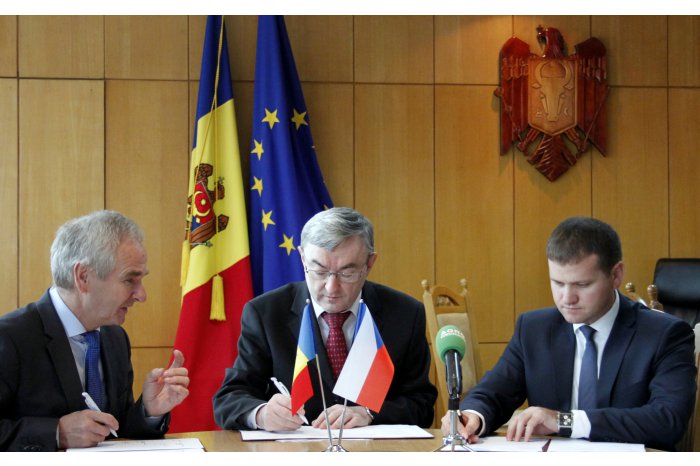Czech government to support project on reducing risks at polygon of pesticides
13:51 | 26.10.2016 Category: Social
Chisinau, 26 October /MOLDPRES/- The Environment Ministry, National Agency for Food Safety and Czech Development Agency today signed a memorandum of understanding in Chisinau, which will allow implementing a project on reducing risks at the dangerous landfill from Cismichioi in Gagauz-Yeri.
Under the project, in 2016-2017 a feasibility study is to be carried out, which will assess the ecological situation in the area, will elaborate recommendations on further managing the object, exactly determining quantities and categories of storing substances, as well as the cost of works for their evacuation and destruction.
“About 4,000 tons of pesticides are buried at the polygon near Cismichioi village in Gagauz-Yeri. We also have over 1,600 contaminated locations – former warehouses, stations for preparing solutions, other objects used in agriculture chemicalization. All require urgent remedial measures, especially as this polygon is situated on the border with Ukraine, not far from the border with Romania, representing a cross-border environmental issue,” Environment Minister Valeriu Munteanu said.
The study supported by the Czech partners includes three basic stages focused on collecting data, assessing risks and analysis of results. “The works will be carried out by Dekonta Company from the Czech Republic and coordinated on behalf of Moldova by EMP Management Durabil POP institution and Vulcanesti-based district directorate for food safety. The project’s activities are to be completed in June 2017, and the results will be unveiled to authorities and civil society within special seminars,” Czech Ambassador to Moldova Zdenek Krejci said.
During the Soviet period, over half a million tons of pesticides were used in Moldova, of which over 22,000 tons were banned in 1970 under the Stockholm Convention. Since 2004, 1,300 tons of pesticides were evacuated from the country and other nearly 2,000 tons were centralized in secured warehouses.
(Reporter L. Grubîi, editor A. Răileanu)

